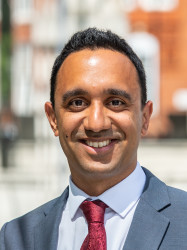BibTex format
@article{Pilling:2021:10.1111/tct.13279,
author = {Pilling, R and Mollaney, J and Chandauka, R and Barai, I and Parekh, R},
doi = {10.1111/tct.13279},
journal = {The Clinical Teacher},
pages = {163--167},
title = {“BURSTING THE BUBBLE”: Service learning in schools},
url = {http://dx.doi.org/10.1111/tct.13279},
volume = {18},
year = {2021}
}

